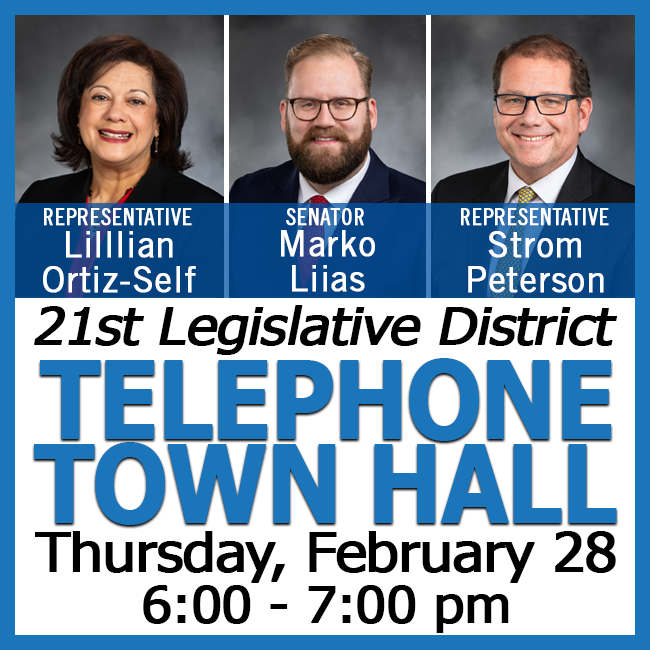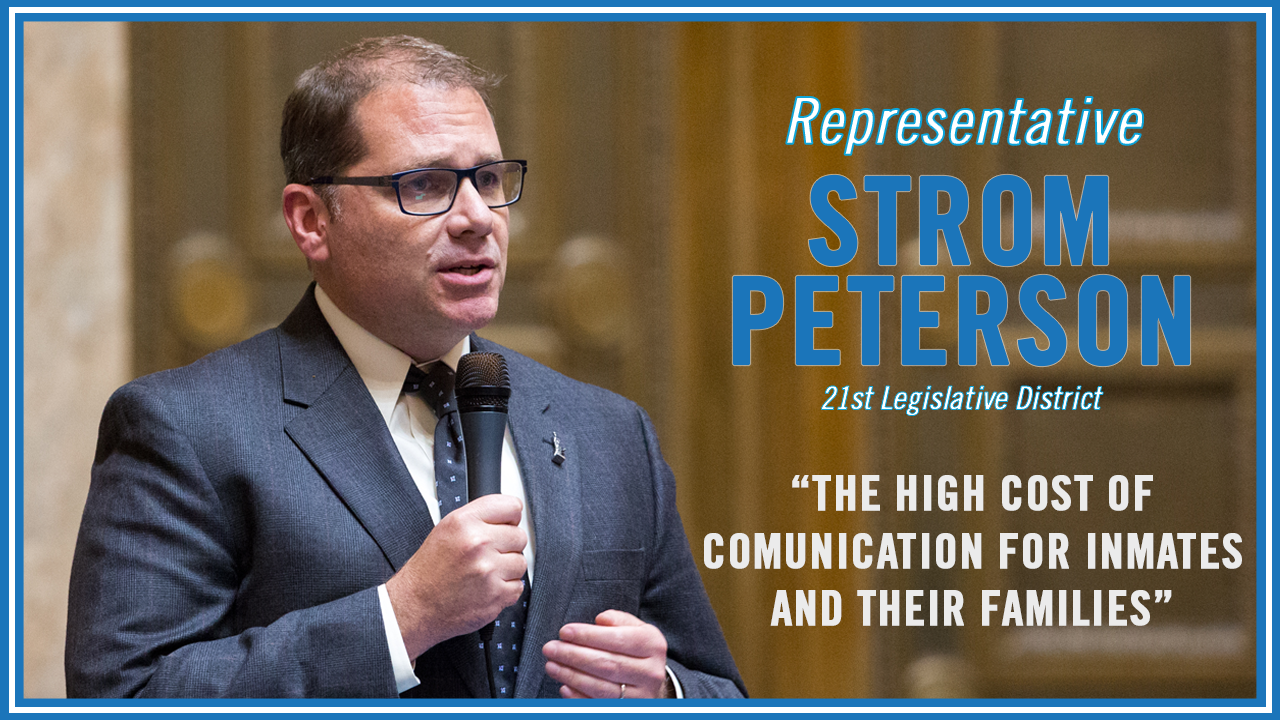
Mark your calendar: Upcoming Telephone Town Hall!
Join your 21st District legislators on Thursday, February 28, at 6 PM for a telephone town hall!
Calls will go out to thousands of homes throughout the 21st Legislative District. We invite you to listen live and ask us questions on issues ranging from education, healthcare, and juvenile justice to transportation, behavioral health, housing, and climate change.
If you don’t have a landline or don’t receive the call, you can still participate by dialing 877-229-8493 and using ID Code 116357.
Alternatively, you can live-stream the telephone town hall: Vekeo Link
Making college more affordable for Washington students
House Democrats are working to make college more affordable for students with a package of bills that help reduce costs for students across the state.
The State Need Grant is intended to ensure low-income students are able to afford college, but in 2017, roughly 25% of students who qualified for assistance did not receive it. The Washington College Promise Scholarship would guarantee that all currently eligible students would receive the scholarship. House Bill 1123 creates a similar program but expands who qualifies and focuses on students attending career and technical colleges.

House Bill 1311 strengthens the College Bound Scholarship by making students eligible for the program whose families make 70% of the state median family income or less. It also prioritizes College Bound Scholarship students for State Need Grant assistance.
Students who participate in dual-enrollment programs, like College in the Classroom or Running Start, are able to graduate from college and enter the workforce earlier, with less debt and better pay. House Bill 1973 establishes a scholarship pilot program to help low-income students participate in these dual-enrollment programs, earning the same credits at a lower rate.
Room and board is part of the high cost of education, and for students who are homeless it can be an additional barrier to staying in school. House Bill 1278 would establish a one-year room and board waiver program for first-year College Bound students who are homeless.
House Bill 1178 expands and increases tuition waivers for those who have served our nation and our state, including veterans, National Guard members, and their families.
College students are facing an affordability crisis. Investing in their education will help strengthen our state’s economy and get them into family-wage jobs earlier and with less debt. Everyone wins when we invest in higher education and workforce development.
The high cost of communicating with an incarcerated loved one
When serving time in a state-run prison or in a local jail, inmates can make calls, send emails, or even videos, but it will cost them. Inmates are required to set up accounts with private companies contracted to provide communication services, family members and loved ones pay into the account, and then inmates are then charged for each use.
The costs of these services have continued to rise, with some local jails reporting average costs for a 15-minute phone call to be almost $6, while others have reported rates higher than a dollar per minute.
Until recently, the Federal Communications Commission took steps to address the skyrocketing rates. Unfortunately, the regulation was challenged in court by many of the companies that provide these communication services, and the current administration has declined to defend it.
That’s why we must take action at the state level.
This session, I’ve introduced legislation that would establish maximum rates for calls, video visitation, emails, and other communication services for inmates. Establishing reasonable rates for communication services will keep the system fair, and relieve some of the burden from our state’s inmates and their families.
To learn more about the high costs inmates and their families pay just to stay in touch, and the bill I’ve introduced to establish reasonable rates, watch my latest video update!

Policy and fiscal committee ‘cutoff’ in Olympia
With hundreds of bills introduced each session, it can be quite a challenge to make sure that everything keeps moving along. Cutoff dates are self-imposed deadlines that the Legislature agrees to in order to funnel and narrow down the number of bills that can be considered at each stage of the legislative process.
The first cutoff deadline, policy committee cutoff, was last Friday, February 22. If a bill did not pass out of a policy committee before that date, it is dead for this session. The only exception to these cutoff dates are bills that are necessary to implement the budget.
These cutoffs are essential for the effective operation of the Legislature but it makes for a high paced, sometimes tense period for legislators, lobbyists, and the citizens we represent who closely watch if their bills pass or die.
The bills that passed out of their assigned policy committees are continuing in the process, but the next cutoff deadline is this Friday! Bills that pass through fiscal committees must be passed out by that deadline.
Many bills are introduced during the session, but remember not all bills will become law.
As always, feel free to reach out if you have ideas, questions, or comments.
Sincerely,

Rep. Strom Peterson
